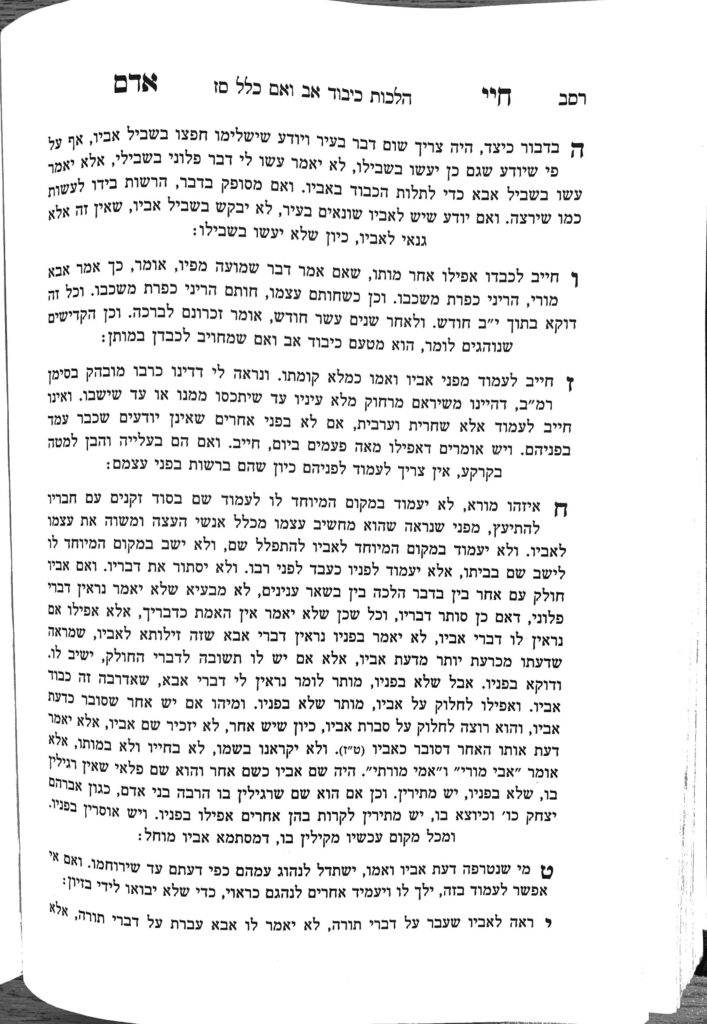We are beginning siman 9, where the Chayei Adam discusses a painful and pressing issue. Many people end up in a situation where their parents grow elderly and care becomes challenging. The Chayei Adam discusses the extent of the chiyuv kibud av v’eim in these situations.
The Chayei Adan writes that one whose parents have lost their minds due to illness should try to take care of them to the best of their ability. One should try to work with them from the parent’s vantage point, in that if the parent sees things differently due to their illness, a child should try to take care of them based on the parent’s perspectives.
However, the Chayei Adam writes that if the situation becomes too demanding and beyond the abilities of the child, the child should leave and appoint others to take care of the parent in their stead. Someone who is not a child can often have an easier time in these situations, because they are not emotionally invested. In this manner, the parent will not be degraded and will receive the care they need.
The source for this halacha is the Rambam, and it is quoted by the Shulchan Aruch as well. The idea behind this halacha is that even if the child is not able to fulfill kibud av v’eim properly, it does not necessarily halachically exempt them from kibud av v’eim if they are present and hear a request from their parent. It certainly does not permit responding to the parent in a degrading or otherwise inappropriate manner. Therefore, the best suggestion is to appoint someone else for their care, so that the child can absent themselves from the situation and avoid being forced into a halachic issue. The child should certainly try to be present and take care of their parent to the best of their abilities, but in this way, they are able to avoid situations in which they become emotionally overburdened. Care for elderly parents is a common issue, and it is interesting to see how the Rambam and Shulchan Aruch already dealt with the question.
We will learn in siman 11 that a child has limitations of how they can respond to a parent when a parent makes a request or comment which the child feels is ridiculous or out of line. In such a situation, it is better for the child not to be present at all, rather than to be present and respond in a way which would be demeaning to the parent. This halacha is in line with what we have learned above.
We will learn later that in a situation in which the parent is overburdening a child in a way that the child feels physically or emotionally abused, the parent transgresses lifnei iver for “enticing” the child to respond inappropriately. On the other hand, the child still has no right to respond inappropriately. Rather, as we have been learning, it is better for the child to absent themselves and avoid confrontation rather than be placed in a situation in which they will respond inappropriately.
Summary
A child has a chiyuv to take of their parents. However, if the level of care required becomes too emotionally burdening, one should appoint others to care for the parent in their stead rather than be placed in a situation where they will respond inappropriately.



